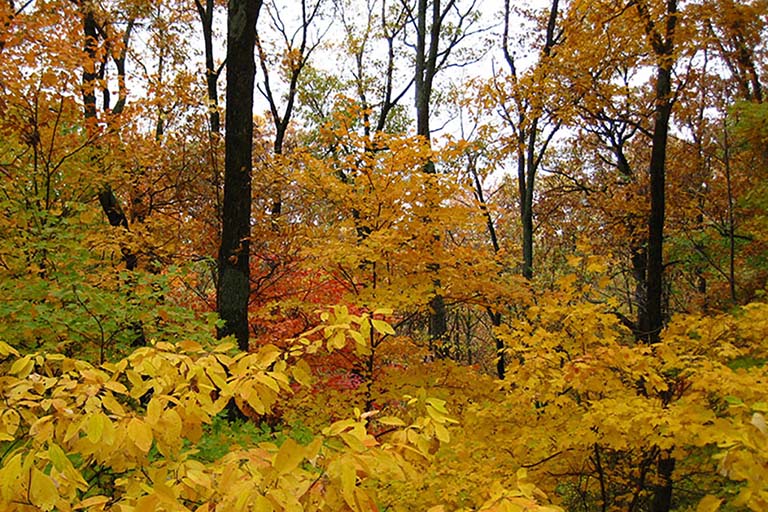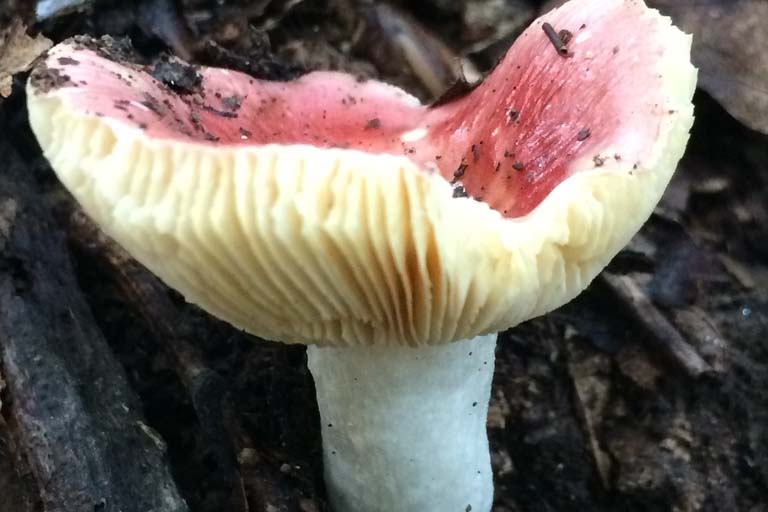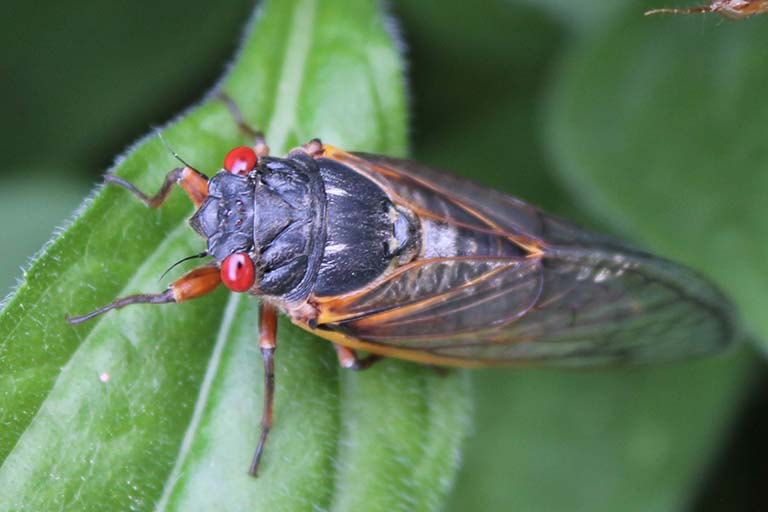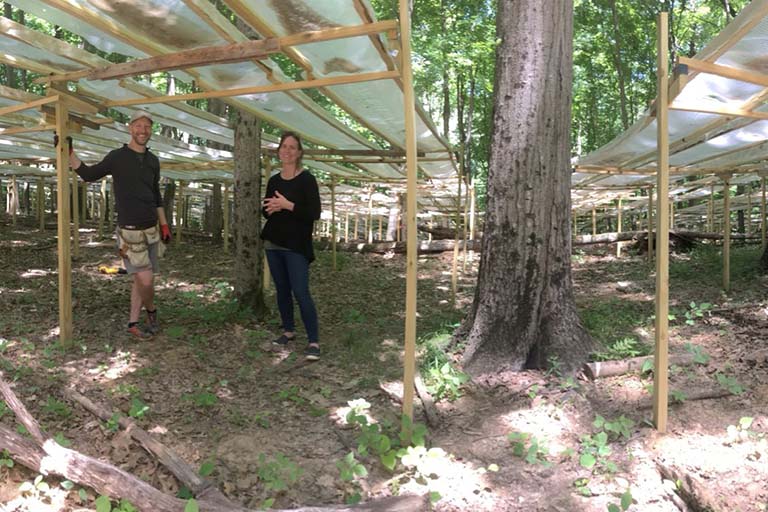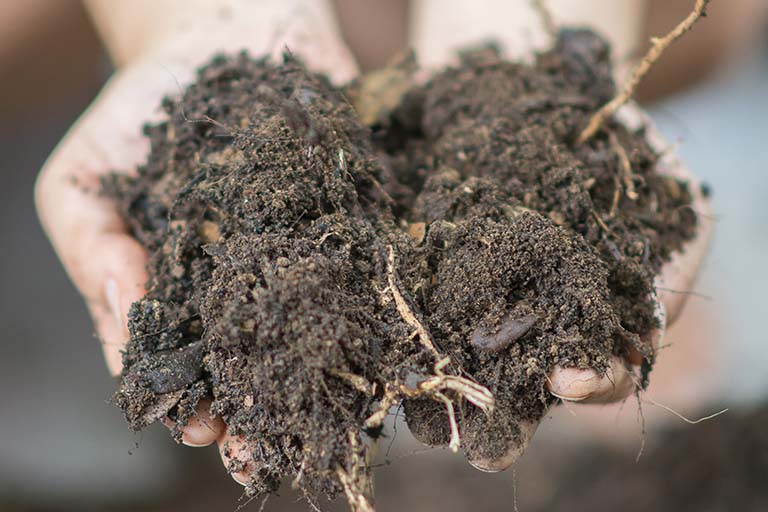Our lab investigates how plants and soil microbes mediate energy flow and nutrient dynamics in forests. Plants and microbes perform vital ecosystem services (e.g., carbon storage, water filtration, nutrient retention) and reduce the impacts of some of society’s greatest environmental threats. We use a complementary suite of approaches that integrate field observations with controlled environmental systems to address questions that intersect plant physiological ecology and soil microbial ecology in an ecosystem context.
The "hidden half"
Much of our work focuses in the role of roots, the "hidden half" of plants. Roots are often considered to be passive portals for soil resources. There is, however, an emerging view that roots, through their activities and interactions with soil microbes, actively alter ecosystem processes. The consequences of root-microbe interactions are critical, as these processes link the carbon, nutrient, and water cycles in ecosystems and have the potential to influence ecosystem dynamics and global climate change.
Three major themes of our research include:
- The impacts of belowground processes on carbon and nutrient dynamics across spatial scales
- Mycorrhizal associations as trait integrators for biogeochemical cycling in forests
- The role of plant and microbial interactions in mediating ecosystem reponses to global change (e.g., warming, drought, rising CO2, N deposition).



